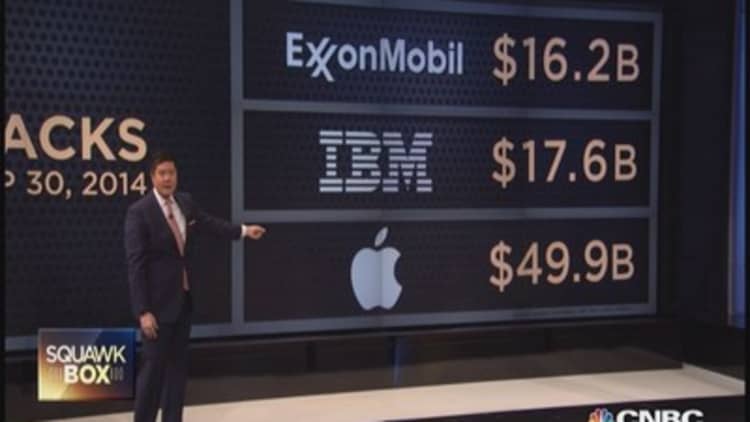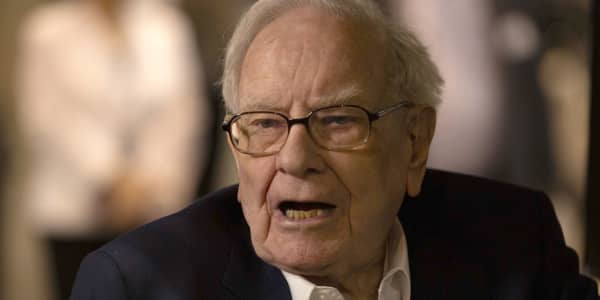U.S indexes are at record levels, the pan-European Eurofirst 300 just closed at its highest level in more than seven years and Japan's Nikkei is at a 15-year peak. This is a cause for celebration for many, but some investors are spooked by an underlying trend that has been sparked by a wave of global liquidity.
Over the past few months, many of the corporate America's' biggest names, including ExxonMobil and IBM, have decided to buy back their own shares. And new data shows that the trend could be catching, with European and Japanese firms also looking to take advantage of the current era of ultra-cheap funding.
"We know about U.S. buybacks, it's been the case for a while....what has been less the case has been European buybacks. And we are getting news flow building up there," Antonin Jullier, global head of equity trading strategy at Citi, told CNBC Friday.
About $8 billion worth of buybacks have already been announced by a dozen European companies, including ABInbev and ASML, this year, according to Reuters. And statisticians at the news agency predict that this "appetite is likely to keep growing." This comes as the European Central Bank is about to inject 60 billion euros-a-month into the euro zone economy.
And it looks as though smaller business are following their larger cousins with buyback programs. Greggs - a British baked goods and savory pies company -- has been busy putting its free cash flow to work. Analysts at Citi have noticed that more and more European companies outside the euro zone have been issuing debt in the cheaper euro, contemplating a "new wave of European buybacks."
Return on equity
Buybacks, when firms buy their own shares trading on the stock exchange, offer a way to return cash to shareholders - along with dividends - and usually coincide with a company's stock pushing higher as shares get scarcer.
Many analysts see stock buybacks as being a key driver behind record highs for stock markets rather than any expansion in company earnings. In some cases, firms are borrowing cash to buy back their shares, thus taking advantage of ultra-low interest rates which have been caused by the monetary policies of global central banks.
Despite improving the improving return on equity, there are critics of the strategy. Some believe that firms should be using the cash on more expenditure to drive growth. Others worry that it artificially drives the stock markets higher with many indexes looking overvalued at this point in the bull market.
'Botoxing' stocks

Bond guru Bill Gross spoke about the rise of corporate buybacks in his latest newsletter last week, highlighting that the financial system has become "increasingly vulnerable" only six years after its last collapse in 2009. Brian Reynolds, the chief market strategist at Rosenblatt Securities spoke of a resurgence of "debt-fueled" buyback in a research note this week, claiming that the "Botoxing of stocks is likely to intensify."
U.S.-focused research tracker TrimTabs said Sunday that corporate buying had soared to a two-year high of $145.7 billion in February, with new stock buybacks averaging $5.8 billion daily. Birinyi Associates also estimated this week that buyback authorizations and planned purchases by firms hit a record last month, according to an article published in newspaper Barron's.
Meanwhile, an extensive report by S&P Dow Jones Indices Monday highlighted that the percentage of companies with positive buybacks had been increasing in Canada, developed Europe and developed Asia Pacific. Blackrock is one firm that expect a surge in buybacks for corporate Japan. In a note in November, investment strategists at the company said that "strong balance sheets" in the country would leave plenty of room for some mild "financial engineering," adding that share buybacks and dividend hikes were becoming more prevalent.
Additionally, Senior Strategist Kenji Shiomura at Daiwa Securities Group Inc, predicted last month that Japanese companies would rush to buy back shares in the next six weeks as they seek to boost their return on equity before the fiscal year ends, according to a report by Bloomberg.






